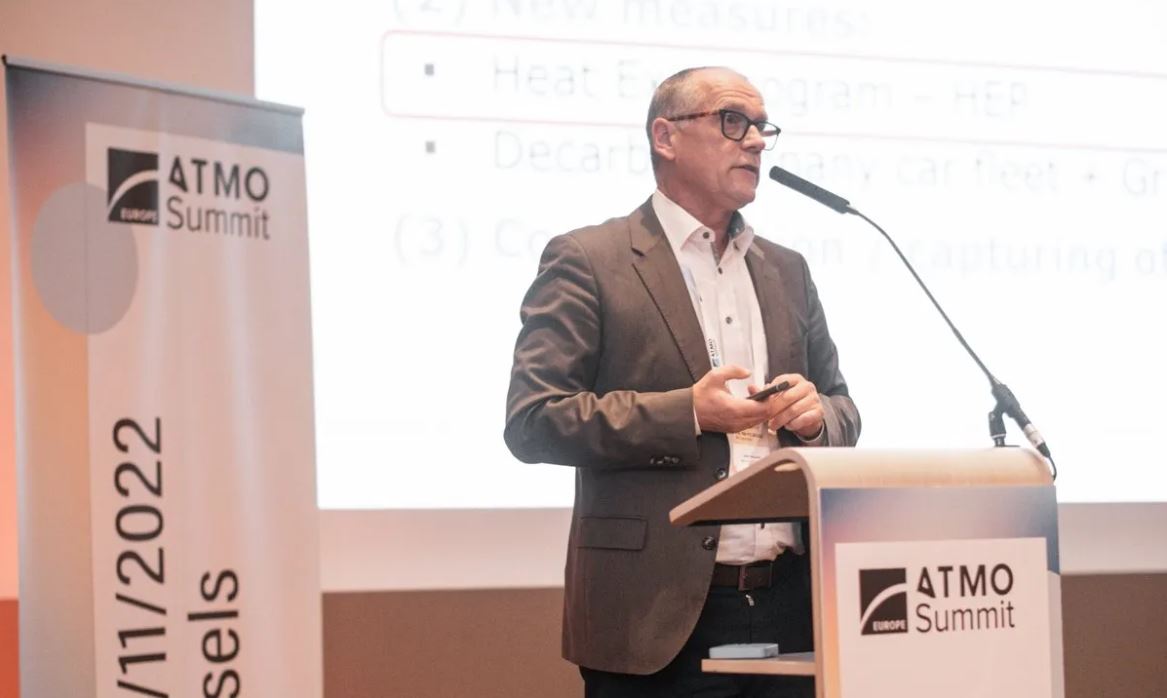METRO continues rollout of transcritical CO2 in all new stores and refurbishments
February 22, 2023

Germany-based international food wholesaler METRO is continuing its rollout of natural refrigerant-based refrigeration systems and equipment in all its new stores and refurbishments throughout 24 countries in Europe and Asia.
According to Olaf Schulze, Director of Energy Management and Real Estate Sustainability at METRO Properties (the real estate division of METRO), the company is focused primarily on transcritical CO2 (R744) technology with an ejector due to its high energy efficiency and heat recovery potential.
As of September 2022, the retailer had installed transcritical CO2 refrigeration systems in 153 of its 700 stores, up from 121 stores in April 2021. METRO is planning 40 more transcritical installations per year, he added. METRO runs business membership-only cash-and-carry stores.
In addition to CO2, METRO also works with ammonia/NH3 (R717) and propane (R290).
These efforts are in support of METRO’s goal to achieve net-zero emissions across all its operations and facilities by 2040, he explained.
Schulze shared the update on METRO’s progress during his presentation in the end user best practice session at the ATMOsphere (ATMO) Europe Summit on natural refrigerants. The conference took place November 15–16 in Brussels and was organized by ATMOsphere, publisher of R744.com.
Steady rollout of transcritical CO2
In 2022, METRO installed transcritical CO2 systems at stores in Hungary, Kazakhstan, Moldova and Portugal – the first ever in those countries, Schulze said.
In 2023, the company plans to introduce transcritical CO2 to its stores in Serbia and Kyiv, Ukraine; the latter is scheduled for completion in March, despite the current unrest in the country. METRO also has plans for additional installations of the technology in Hungary, Kazakhstan, Moldova and Slovakia.
METRO’s plans to install transcritical CO2 equipment at a store in Turkey have been delayed due to a lack of service technicians, said Schulze, adding he hopes the installation can take place next year.
Ultimately, METRO aims to have transcritical CO2 equipment in its stores in all 24 countries in which it operates. To meet this target, the company is “increasing and accelerating” its project pipeline, with plans for 53 retrofit projects, 40% of which will be completed by 2030.
As of September 2022, METRO had 64 stores with subcritical CO2 technology. The majority of its warehouses were using ammonia-based refrigeration systems (with the exception of two in Poland that use R744), and a number of stores were equipped with R290-based plug-in refrigerated cabinets.
METRO’s F-gas Exit Program
Introduced in 2013, METRO’s F-gas Exit Program (FEP) aims to phase out the use of HFCs and HCFCs in all of its stores by 2040. This includes its properties in India, Pakistan and Kazakhstan, explained Schulze.
Recognizing the importance of the f-gas phasedown, METRO is doubling its investment in its FEP, committing €80 million (US$86 million).
“This sends a clear message,” he said. “Investing in new cooling equipment is a good investment; it reduces energy costs, it reduces maintenance and repair, it looks better, and it improves food quality and customer experience.”
In addition to committing to only using natural refrigerants in its new and refurbished stores, METRO is working to reduce its f-gas leakage rate in existing equipment. As of August 2022, its leakage rate was 7.5% across all stores, down from its baseline of 8.4%.
The company is also adopting “smart repair solutions” for smaller projects, removing old and leak-prone existing cabinets and replacing them with new R290-based plug-ins, Schulze explained.
Green stores and heat recovery
The FEP is running alongside a number of other programs that support METRO’s 2040 net-zero goals, including work on energy efficiency, solar energy and vehicle decarbonization.
Particularly relevant to the company’s f-gas phaseout efforts are its rollout of new “green stores” – which must be climate neutral – and its Heat Exit Program (HEP), which involves the introduction of heat recovery and heat pumps.
As of 2021, five of METRO’s stores recovered waste heat – three in Poland and two in Romania. Efforts were scaled up in 2022, with heat recovery technology installed at one store in Bulgaria, six in Germany, five in Poland and three in Romania. According to Schulze, there are further plans to introduce heat reclamation in eight German stores this year.


